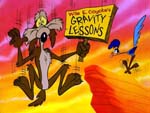News
Just Desserts
Dec 16, 2012
 We live in a world of our own making. And we have no right to question that world when it goes wrong and 20 babies are massacred by a troubled young man with unlimited access to semi-automatic weapons. We have no right to mourn. Because we knew, before it happened, that it was going to happen. And we know that it is going to happen again. And again. And again. Such atrocities (where at least four people were slain by a lone gunman) have occurred 62 times, according to Mother Jones, since 1982 (did everything start to go wrong with Reagan?).
We live in a world of our own making. And we have no right to question that world when it goes wrong and 20 babies are massacred by a troubled young man with unlimited access to semi-automatic weapons. We have no right to mourn. Because we knew, before it happened, that it was going to happen. And we know that it is going to happen again. And again. And again. Such atrocities (where at least four people were slain by a lone gunman) have occurred 62 times, according to Mother Jones, since 1982 (did everything start to go wrong with Reagan?).
So don’t show me any pictures of grieving parents or choked-up presidents. Don’t bother telling me, aghast, that the only Republican recommendations following Newtown are to arm every adult in every school and don’t print the names of the shooters. We made this world, and we know how it works. And it will only get worse until we write ourselves a new social contract, one in which the people come first, and we begin to treat ourselves with proper respect and consideration, as well as begin to demand of ourselves that we live up to certain responsibilities and expectations.
Until then, we will continue to be mere grist for a grisly media.
Noted with Interest, October 2012
Oct 27, 2012

- Chart of the Day: The Price of Inequality
- By Adam Frost, et al. Why are we in last place? From New Statesman, Oct 26, 2012. Accessed Oct 27, 2012.
- The Self-Destruction of the 1 Percent
- by Christia Freeland. Forgetting the past, and condemned to repeat it. From New York Times, Oct 13, 2012. Accessed October 15, 2012.
Tiger at the Gates
Jul 25, 2009
 The Henry Louis Gates encounter with the Cambridge police has been much in the news of late, even prompting the president to put in his two cents’ worth (and his foot in his mouth). I have read much on the issue, from various points of view, in an attempt to understand my own attitude toward the encounter, the significance of which, of course, goes well beyond the incident itself.
The Henry Louis Gates encounter with the Cambridge police has been much in the news of late, even prompting the president to put in his two cents’ worth (and his foot in his mouth). I have read much on the issue, from various points of view, in an attempt to understand my own attitude toward the encounter, the significance of which, of course, goes well beyond the incident itself.
The legacy of race relations in the U.S. is the cross we all bear as Americans. Slavery was a crime against humanity as foul as any save genocide and was, indeed, a kind of genocide. The plight of the colored races in this country, since black Americans were freed in 1863, has been scarcely better than slavery and, in some locales and periods, arguably worse.
The fact that America today can elect a black president is cause for enormous pride and celebration. Without minimizing this, however, we must acknowledge that racism still smolders in our hearts, and its effects are still a plague upon a huge contingent of our people. No black person in America lives what any white person would recognize as a “normal life.” They never enter society unaccompanied by some level of fear and apprehension. They have not a moment’s waking peace, and their dreams are troubled by the residue of generations of intense cruelty and injustice.
Into this mix arrives a routine police response to an alleged breaking and entering, ending with the arrest in his own home of one of America's most respected intellectuals. An insufficient I.D., persistent outrage, an unfortunate “clash of egos”—whatever the putative cause of Gates’s short-lived arrest, a simple fact, I believe, remains indisputable: Gates’s anger provoked anger in the policeman, and a policeman in the course of his duties must not allow himself to become angry. Such a debilitating emotional response must be trained out of recruits, or they should not be allowed to serve. You may argue that a policeman’s day consists of scores of provocative encounters with angry and dangerous elements. All the more reason why an appropriate professional response must not include an emotion which interferes with an appropriate professional response.
____________________
1 Obama Expresses His Regrets on Gates Incident, by Jeff Zeleny, the New York Times, Jul 24, 2009, accessed Jul 25, 2009.
About Face(book)
Apr 13, 2009
 Miss Manners had a letter that caught our interest last week.1 A woman wrote in regarding Facebook. She had responded to postings from two of her “friends” on the “social networking” site. In both instances, the writers of the original postings told the letter writer, more or less, to mind her own business.
Miss Manners’s response was, as usual, right on point:
Miss Manners had a letter that caught our interest last week.1 A woman wrote in regarding Facebook. She had responded to postings from two of her “friends” on the “social networking” site. In both instances, the writers of the original postings told the letter writer, more or less, to mind her own business.
Miss Manners’s response was, as usual, right on point:
“Your friends are turning into virtual friends… The model for this, as Miss Manners is not the first to observe, is the celebrity. They “do” publicity through trusted chroniclers—in this case themselves—but are huffy about their “privacy” when they manage to attract someone’s interest… Miss Manners is afraid you must note whether their confidences are being made to you as a friend or the wide world of virtual so-called friends who are not expected to show interest. Or you could make new friends who value real friendship.”Facebook and MySpace are, in reality, antisocial networking sites where individuals can strut their stuff before a captive aggregation of friends and acquaintances, with the implicit understanding that their observations are to be taken at face value, sans comment, contention, or even commiseration, except of the most cursory sort. Far from encouraging close relationships, these sites offer arms-length protection from the true interactions of friendship, and merely abet and exacerbate a disturbing isolationism, so necessary in turning us all into corralled consumers for the corporatocracy.
So to our few friends on Facebook: Au revoir. You know where to find us.
____________________
1 A Slap in the Facebook, by Miss Manners (Judith Martin), quoted in the Washington Post, Apr 8, 2009, accessed Apr 8, 2009.
Till Death Do Us Part
Mar 23, 2009
 The Vermont state legislature was battling over a gay marriage bill last week. When we went to press (last Thursday) the issue had still not been resolved. Vermont, of course, was the first state to permit what we called at the time “civil unions,” presumably to distinguish them from all the uncivil ones that dotted the state. Since then, many states have followed our lead, but only two—Massachusetts and Connecticut—have gone all the way and legalized same-sex marriage. Our Republican governor thinks civil unions are good enough, though he hasn’t yet answered the very good question of why they aren’t good enough for him.
The Vermont state legislature was battling over a gay marriage bill last week. When we went to press (last Thursday) the issue had still not been resolved. Vermont, of course, was the first state to permit what we called at the time “civil unions,” presumably to distinguish them from all the uncivil ones that dotted the state. Since then, many states have followed our lead, but only two—Massachusetts and Connecticut—have gone all the way and legalized same-sex marriage. Our Republican governor thinks civil unions are good enough, though he hasn’t yet answered the very good question of why they aren’t good enough for him.
Coincidentally, we are currently all wrapped up in another terrific HBO series, Big Love. It is about a polygamous union in Utah. Bill Paxton is married to three wives—why do such unions never consist of one woman and multiple men?— and is having a tough time keeping a low profile as he builds a Home Depot-like empire in the Salt Lake City suburbs. As with the Sopranos, you can’t help but root for the ones who are supposed to be the bad guys from time to time, particularly as everyone around them seems even more loathsome.
We like to think we are reasonable enough to listen to both sides; however, we can’t find any argument on the side of those defending conventional marriage that doesn’t seem simply to come down to, “Because we don’t like it.” Gay marriage, plural marriage, common-law marriage, no marriage (another status that brands you a misfit in our society)... Why can’t we just leave each other alone and let us all hook up the way we want to? There must be a dollar at risk somewhere, though we can’t for the life of us figure out where it is.
Still, ten years ago, there was no such thing as civil unions or same-sex marriage anywhere in the land, and today there is. That’s progress. And we’ll leave it there.
A Pun My Word!
Feb 14, 2009
 Yesterday’s entry was such a downer, we thought we would pass along a funny email we received from a friend today (Hi, Jan!). It is, after all, Valentine’s Day and as someone once said, laughter is the shortest distance between two people.
Yesterday’s entry was such a downer, we thought we would pass along a funny email we received from a friend today (Hi, Jan!). It is, after all, Valentine’s Day and as someone once said, laughter is the shortest distance between two people.
Pun Intended
- Two antennas met on a roof, fell in love and got married. The ceremony wasn’t much, but the reception was excellent.
- A jumper cable walks into a bar. The bartender says, “I’ll serve you, but don’t start anything.”
- Two peanuts walk into a bar, and one was a salted.
- A dyslexic man walks into a bra.
- A man walks into a bar with a slab of asphalt under his arm and says: “A beer please, and one for the road.”
- Two cannibals are eating a clown. One says to the other: “Does this taste funny to you?”
- “Doc, I can’t stop singing ‘The Green, Green Grass of Home.’” “That sounds like Tom Jones Syndrome.” “Is it common?” “Well, It’s Not Unusual.”
- Two cows are standing next to each other in a field. Daisy says to Dolly, “I was artificially inseminated this morning.” “I don’t believe you,” says Dolly. “It’s true, no bull!” exclaims Daisy.
- An invisible man marries an invisible woman. The kids were nothing to look at.
- DejaMoo: The feeling that you’ve heard this bull before.
- I went to buy some camouflage trousers the other day but I couldn’t find any.
- A man woke up in a hospital after a serious accident. He shouted, “Doctor, doctor, I can’t feel my legs!” The doctor replied, “I know you can’t - I’ve cut off your arms!”
- I went to a seafood disco last week... and pulled a mussel.
- What do you call a fish with no eyes? A fsh.
- Two fish swim into a concrete wall. The one turns to the other and says “Dam!”
- Two Eskimos sitting in a kayak were chilly, so they lit a fire in the craft. Unsurprisingly it sank, proving once again that you can’t have your kayak and heat it too.
- A group of chess enthusiasts checked into a hotel and were standing in the lobby discussing their recent tournament victories. After about an hour, the manager came out of the office and asked them to disperse. “But why,” they asked, as they moved off. “Because”, he said, “I can’t stand chess-nuts boasting in an open foyer.”
- A woman has twins and gives them up for adoption. One of them goes to a family in Egypt and is named “Ahmal.” The other goes to a family in Spain; they name him “Juan.” Years later; Juan sends a picture of himself to his birth mother. Upon receiving the picture, she tells her husband that she wishes she also had a picture of Ahmal. Her husband responds, “They’re twins! If you’ve seen Juan, you’ve seen Ahmal.”
- Mahatma Gandhi, as you know, walked barefoot most of the time, which produced an impressive set of calluses on his feet. He also ate very little which made him rather frail and with his odd diet, he suffered from bad breath. This made him (oh, man, this is so bad, it’s good)..... A super calloused fragile mystic hexed by halitosis.
- And finally, there was the person who sent twenty different puns to his friends, with the hope that at least ten of the puns would make them laugh.
No pun in ten did.
Falling Off A Cliff
Feb 13, 2009
 We’re about to fall off a cliff.
We’re about to fall off a cliff.
In fact, we probably already have and, like Wile E. Coyote, haven’t quite realized it yet. You can’t lose two and a half million jobs in five months. You can’t spend $850 billion stimulating a dead economy that groans under a $1 trillion annual deficit after a $750 billion bank bailout on top of an $11 trillion national debt. You can’t fight two losing wars simultaneously.
And when you try, you are in for a fall. For all the bad news we have absorbed of late, we are still just those few steps off the cliff edge, still suspended in the air. We await that moment when we look down and realize the earth is no longer under us. We will then look up and into the camera, a hapless grimace of quiet desperation will flit across our features, and down we’ll go, a little cloud of smoke in the place where we once stood.
And then what? Will there be riots in the street? Will a Mad Max sort of dystopia begin popping up here and there in the heartland? Will the “best lack all conviction, while the worst are full of a passionate intensity”?1
Or will the shock be so sharp and so sudden that our better instincts will prevail, and we come together in that sort of involuntary embrace that brings the young innocents together at the howl of the werewolf, the creak of the hinge?
Whatever may be, as Margo Channing observed, “Fasten your seatbelts, it’s going to be a bumpy night.”2
____________________
1 The Second Coming, by William Butler Yeats, accessed February 10, 2009
2 Memorable Quotes for All About Eve, accessed February 10, 2009
After Life
Feb 02, 2009
 Oprah is 55. Updike is dead. We’re working on our last will and testament.
Oprah is 55. Updike is dead. We’re working on our last will and testament.
It seems mortality is on our mind.
Voltaire said that if God did not exist, it would be necessary to invent him. Some believe God to be a representation of mankind’s desire to lead a moral life, in defiance of our baser instincts, with heaven the ultimate reward for doing so. The Eastern notion of reincarnation is a similar manifestation of that desire, in that one returns again and again until one gets it right, and is then released from the cycle of life.
The philosopher Blaise Pascal made a celebrated wager regarding God and the afterlife. He said the question could go one of four ways: You could believe in God and the afterlife and you could be right, or you could be wrong. Or you could not believe and the same two possibilities apply. He recommended belief because if you did not believe and you were wrong, you would suffer a great deal more than if you did believe, and God and the afterlife proved not to exist.
If there is a God, and one which is not hopelessly perverse, we expect he is more interested in our living a loving, moral, and generous life than whether we subscribe to the unlikely notion that such a being could actually exist.
More to the point, we have a wager that is at least as good as Pascal’s. Substitute “your life on earth” for God and the afterlife. You can believe that that is all there is, or not. And you can be right or wrong. To believe your life on earth is not all there is, and, in the end of that life, to be proved wrong, strikes us as infinitely more sad, infinitely more tragic, than the downside of Pascal’s wager.
____________________
1 Pascal’s Wager, from Wikipedia (accessed January 29, 2009)
Prepare to Die
Jan 23, 2009
 Because you’re going to, you know. Oh, it’s not so bad. Everybody does it. And if you believe in an afterlife, just imagine what a pleasant time is in store for you through all eternity.
Because you’re going to, you know. Oh, it’s not so bad. Everybody does it. And if you believe in an afterlife, just imagine what a pleasant time is in store for you through all eternity.
Meanwhile, there’s work to be done and whatever age you may be, there’s no time like the present. A few recommendations:
- Clean Out the Basement
- Your spouse, kids, heirs, and assigns have no interest in thumbing through those old love letters, unpublished juvenilia, or heavily autographed high school yearbooks. You could only re-read that stuff with a shudder yourself. Chuck it all.
- Teach Your Spouse to Pay Bills
- If you’ve been doing it all these years, you better believe it, they haven’t a clue. Spare them.
- Make a Living Will
- Hope for the best but prepare for the worst. A living will can prevent the medical establishment from draining the last dollar of your net worth forestalling the inevitable with their endless procedures, drugs, expensive life-prolonging equipment, etc. LegacyWriter and other web sites can see you through the process of writing a perfectly adequate Living Will and Medical Power of Attorney without shelling out a bundle to a lawyer for one.
- Donate Your Organs
- We think there oughta be a law requiring the return of body parts to the common pool upon death, but there isn’t, so you have to make the gesture yourself. We can’t imagine a better way to express our gratitude for this lovely life than to leave it knowing we are giving the miracle of sight to a blind person or prolonging someone else’s days on earth. Learn all about the process and procedures involved at MedLine Plus’s Organ Donation site, maintained by the National Institutes of Health. You can also declare yourself an organ donor in your Living Will.
- Make a Regular Will
- Don’t die intestate. If what you are leaving behind is minimally complicated with a small number of people (1-3) to whom you will be leaving money, goods, or property, you can make your own will with web help (see Make a Living Will above). However, most of us acquire enough money and property, and sufficient people and organizations we want to remember upon our demise, that making a proper will under the guidance of a lawyer is probably not a bad idea.
“And death shall have no dominion.”
Euros and Euro Happiness
Dec 11, 2008
 What do you know? The European Union actually cares about the quality of life of all its people, and not just the enrichment of a tiny few at the expense of the rest. Eurofound, the European Foundation for the Improvement of Living and Working Conditions, was founded in 1975 “to contribute to the planning and design of better living and working conditions in Europe.” Eurofound researches these conditions across the 27 European Union countries (including three current candidate countries), tries to identify what works, and passes along that understanding to labor, employers, and governments.
What do you know? The European Union actually cares about the quality of life of all its people, and not just the enrichment of a tiny few at the expense of the rest. Eurofound, the European Foundation for the Improvement of Living and Working Conditions, was founded in 1975 “to contribute to the planning and design of better living and working conditions in Europe.” Eurofound researches these conditions across the 27 European Union countries (including three current candidate countries), tries to identify what works, and passes along that understanding to labor, employers, and governments.
Their Second European Quality of Life Survey (.pdf, 416Kb) has just released its first findings. The full report will be available in spring 2009. The survey sought data on general life satisfaction and happiness relating to family, work, and social life. Among interesting findings we may wish to take to heart:
- Earning disparities are lowest in the countries that show the highest general satisfaction and happiness.
- The country with the highest household income (Luxembourg, with over twice the average EU income), comes in sixth out of 27 on the scale of general satisfaction/happiness.
- The country with the highest general satisfaction/happiness (Denmark) comes in ninth in household income.
The happier populations are in countries, primarily in Scandinavia, where government of, by, and for the people is working. They should be models we seek to emulate in the hard times to come.
Stealing, Lying, and Cheating
Dec 05, 2008
 Apparently, these ethical qualities are as American as apple pie, hence our illustration today. The Josephson Institute has released its latest biennial report from its Center for Youth Ethics, entitled The Ethics of American Youth. It’s not a pretty picture.
Apparently, these ethical qualities are as American as apple pie, hence our illustration today. The Josephson Institute has released its latest biennial report from its Center for Youth Ethics, entitled The Ethics of American Youth. It’s not a pretty picture.
Over a third of high school boys (35 percent) and a quarter (26 percent) of girls admitted having stolen something from a store in the past year, each number up three percentage points from two years ago. Almost all high school children (83 percent) have lied to a parent in the past year about something significant. And cheating in school is up four percentage points (to 64 percent) from 2006. And the numbers may even be worse, since fully a quarter of the 30,000 respondents confessed to lying on one or two of the questions during the survey!
Not to worry, however, since our pedagogical emphasis on nurturing self-esteem has been one of the educational success stories of the past generation. Despite their cheating hearts, fully 93 percent of respondents said they were satisfied with their personal ethics and character, and 77 percent said that “when it comes to doing what is right, I am better than most people I know.”
Before we lapse into Paul Lynde1 mode,2 however, let’s take a few deep breaths and look for some perspective.
Speaking only for ourself, we lied like a rug when we were in high school. We lied about everything to everyone. When we turned 21, we swore off lying, not because it was wrong, but because we refused to continue to be so diminished in our own eyes by our constant lies. We have pretty much kept to that determination throughout a longish adulthood.
We stole from stores a time or two, probably before we were actually in high school, and even committed a few misdemeanor-level vandalisms during the difficult transition from innocence to experience. But that was then and this is now and it is inconceivable to imagine we would steal again from any motivation but the direst want. The fact that we don’t recall cheating in school may probably be laid to the fact that we never sat close enough to the ones who were smarter than we were in order to crib off their papers. And cheating in school always struck us as rather like cheating at solitaire. Finally, what’s the point?
We generally consider that seven-year-old children have reached the Age of Reason,3 before which a child has no real concept of the difference between objective right and wrong. However, to understand that right and wrong exist is not the same thing as to have the capacity to subordinate one’s own interests to ethical considerations. That takes much longer, which is why society doesn’t emancipate its children until they are considerably older.
We take some reassurance in the fact that there is such a significant disconnect between teen behavior and their own self-conception. We do learn right from wrong at seven, and we do struggle for years to bring right and wrong into alignment with our own needs and inclinations—many of us ultimately failing, of course. However, believing that we are essentially such admirable boys and girls cannot, in the end, but help to make us so.
____________________
1 Paul Lynde, from Wikipedia, accessed December 2, 2008, as are other footnoted sources today.
2 “What’s the Matter with Kids Today?,” from Bye Bye, Birdie
3 The Age of Reason, by Adele M. Brodkin, from Scholastic, July 1, 2006
Lonely House
Nov 14, 2008

Funny, with so many neighbors
How lonely it can be.
Lonely street, lonely town
Funny, you can be so lonely
With all those folks around.
We are becoming a lonely nation. The number of Americans who said they have no close confidants tripled between 1985 and 2004. The US Census estimates that 30 percent more Americans will live alone in 2010 than did so in 1980.1 There are almost twice as many single-parent households today than there were in 1970, with only about two-thirds of 73 million children living in a household with two married parents.2
Hannah Arendt had a theory that totalitarian governments wanted their subjects to be lonely. Isolating the populace was a political maneuver, fostering in them an inability to act because there is no one to act with.3 Fear, of course, isolates people as well, and the fear card has been played with a vengeance for the past eight years.
The automobile has taken us away from each other, and if we know our neighbors’ names we rarely know much more about them. Grandma is in the nursing home, the kids are upstairs at their computers, and Dad just fell asleep in front of the TV. Consumerism, generally practiced alone with earbuds intact, has replaced the ice cream social, tag, and a host of other opportunities to mingle with our fellows.
The Internet is supposed to change everything, but has it? Facebook and MySpace strike us as intensely, excruciatingly lonely endeavors, with millions of mostly young voices crying for attention in the void of cyberspace. Political organizing—MoveOn.org’s four million members being the prime example—has resulted only in daily email monologues from the organizers, isolating us the more by their incessant din and appeals for money.
This state of affairs is of great moment to us at All Together Now. Our theme, after all, is in our name. Our species’ gregariousness is a survival mechanism; we dominate life on this planet through our ability to communicate and cooperate. As our inclinations to do either begin to fade, or are inhibited through the machinations of the few, the stability of our species and our planet is endangered. Obama, like Bush before him, has promised to bring us together. Such a promise, even if kept this time around, is not enough. Only we can bring ourselves together—back together. As we struggle to do so, ATN will be here to cheer us on, to mark our triumphs, and to facilitate the process in whatever ways we can.
Sparrows have companions, even stray dogs find a friend.
The night for me is not romantic;
Unhook the stars and take them down.
I'm lonely in this lonely house
In this lonely town.4
____________________
1 Lonely Together, Caleb Crain, from The National, October 30, 2008
2 Single-Parent Households Showed Little Variation Since 1994, Census Bureau Reports
3 Hannah Arendt: Prophet for Our Time, by James M. Campbell (All footnotes accessed November 6, 2008)
4 Lonely House, lyrics by Elmer Rice, music by Kurt Weill, from Street Scene. The link will take you to one of many YouTube performances, this one by tenor John Longmuir.
Fooling All of the People
Oct 26, 2008
 Sarah Palin actually warned us, in her debate with Joe Biden, that "I may not answer the questions that either the moderator or you want to hear, but I’m going to talk straight to the American people…"1
Sarah Palin actually warned us, in her debate with Joe Biden, that "I may not answer the questions that either the moderator or you want to hear, but I’m going to talk straight to the American people…"1
Without such forewarning, you might not have noticed, as you probably didn’t notice during the presidential debates, that the question asked of the candidates wasn’t always the question they answered.
A pair of studies by the Harvard Business School entitled Conversational Blindness: Answering the Wrong Question the Right Way reveals just how often this phenomenon occurs. In the first study, a questioner asks a question and the interviewee proceeds to answer some other unasked question, and we usually fail to notice! When the answer is to a similar question, most of us can’t even remember the original question.
More remarkably, the second study discovered that we will rate someone who provides a good answer to a question they weren’t asked more highly than we will rate someone who gives a poor answer to the question that was asked.
Maybe we’d better all have a closer look at those debates2,3,4,5. Sometimes the Straight Talk Express is the Fast Talk Express, and we’re the ones being taken for a ride.
____________________
1 Transcript of Palin, Biden Debate, from CNN, October 3, 2008 (Accessed October 21, 2008)
2 Full Vice Presidential Debate with Gov. Palin and Sen. Biden, from YouTube (Accessed October 21, 2008)
3 Third 2008 Presidential Debate, from YouTube (Accessed October 21, 2008)
4 Second 2008 Presidential Debate, from YouTube (Accessed October 21, 2008)
5 First 2008 Presidential Debate, from YouTube (Accessed October 21, 2008)
Copyright © 2008 All Together Now.